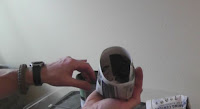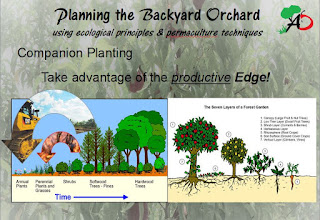 |
| These crocus love the solar trap created by the fence corner and can't wait! |
Spring is just around the corner too and that means it's time for...
Abundant Design's Annual Seed Exchange
WHEN: March 10th, 2018
10:00am - 12:00pm/Noon
Exactly what it sounds like—an event for trading seeds & plants with fellow gardeners and plant enthusiasts. They allow gardeners to come together and share seeds, cuttings, and transplants from their own gardens to swap with others. They are a great way to share some of your extra seeds and get something new to grow — all for free!
Everyone is welcome
This event is for anyone! If you have seeds or wants seeds. Expert gardeners. Beginner gardeners. Aspiring gardeners. Seed-savers. You. If you don’t have any seeds to swap, still come! There should be plenty of seed to share with everyone as well as extra seeds available!There's all sorts of FUN!
- Chat with other gardeners
- Share growing tips
- Great music
- Build community
How it works
- Share Tables - These tables will be where you can place seeds for others to browse and take as needed, and for you to take items to try. Everyone brings seeds to the swap and puts the seeds out on the large tables. These areas will be free-sharing for all.
- Barter Tables - There might even be some Barter Tables which will be for your rarer items that you would trade if you got another more desired item. If someone has rare or expensive seeds, they may be more specific in what they will accept in trades, and you see if the person who brought them is interested in anything you brought.
- There could even be extra tools, scion wood for grafting, who knows!
Most likely, people will just want to share their extra seeds, and they’ll let you take some even if they don't happen to need anything you brought.
You can bring any kind* of seeds/plants to trade: flowers, vegetables, herbs, annuals, perennials, bulbs — it doesn't matter. You can bring seeds you've collected yourself or leftover seeds from packets you have purchased.
It’s really pretty easy…
- Bring seeds that are no more than 2-3 years old.
- Store-bought, mail-ordered or home-saved; all seeds* are welcome.
- If you are bringing seeds you saved yourself, please be sure they are from non-hybrid or knowledgeably hybridized plants, and were saved properly.
- You can bring the seeds in whatever packaging is easiest for you. If you can, please make individual seed packets for people to take. 10-30 seeds are plenty. If you just want to bring your opened seed packet with leftover seeds in it, that's fine, too.
- If you bring seedlings make sure the plants are healthy and well cared for.
- Please clearly label all seed packets and plants with the variety name, year and source plus any special instructions or notes (for example, "These seeds need to be soaked before planting" or "My great-great-grandmother brought these seeds over on the Mayflower").
- Little envelopes and a writing utensil so that you can collect and label your “loot”
*please no seed saved or propagated from patented plants






















